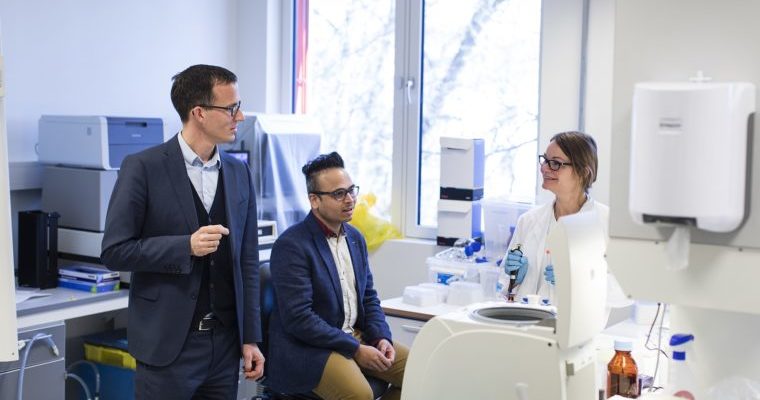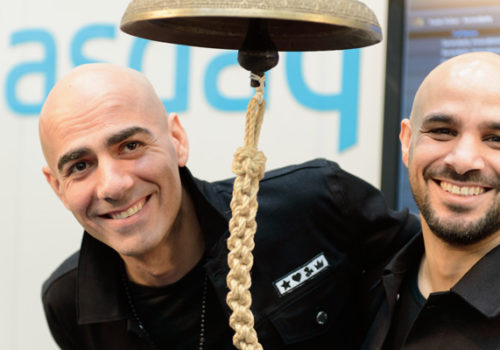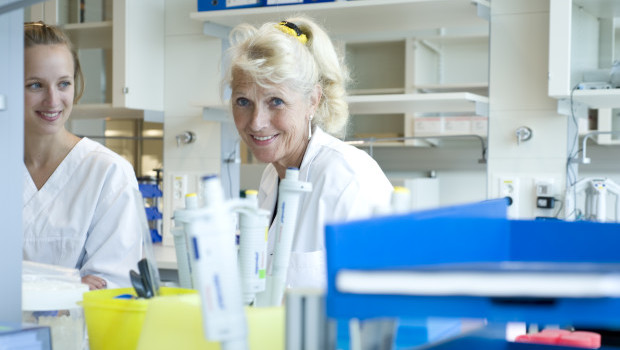For centuries, Oslo has been Norway’s undisputed center of government, industry and culture, and now it is becoming one of the nation’s and region’s major life science hubs.
Home to a top university and hospital, as well as a major cancer research coalition, the city is making its mark in cancer studies and multidisciplinary research. Life sciences, for example, are a priority at the University of Oslo (UiO), which has a large life science initiative. Research will increase and expand after a new university life science center is completed, which is scheduled for 2024. The facility will bring together researchers from different disciplines to work on projects connected to health and the environment, as well as involve members of the business communities and government.
New perspectives
The center is expected to be the focal point of an expanded “neighborhood” life science sector called The Oslo Life Science City.
“The government has strong expectations for money in the life science area and is putting $1billion into the new life science building,” said Professor Per Morten Sandset, Vice Rector for Research and Innovation at UiO.
“Already, the university has been working closely with Oslo University Hospital (OUS) on new approaches to cancer treatment, including immunotherapy,” added Sandset.
The city also is home to Oslo University Hospital – Radiumhospitalet, one of the leading cancer hospitals in northern Europe. One of the innovative research approaches UiO is undertaking is convergence, the idea of bringing together scholars from different academic departments, including those outside of the sciences, to brainstorm.
“When you get many disciplines together, you get perspectives you may not see, new strategies you may not see, and if you are going to solve ethical and legal issues, you need to have other people along,” according to Sandset.
Commercialization
SPARK Norway is another initiative coming out of UiO Life Sciences. The two-year program involves teams of researchers working on health-related life science projects that address unmet needs, with the goal of transforming some of that research into treatments or products. Currently, 11 teams are in SPARK; researchers from UiO and research groups at OUS or Akershus University Hospital (Ahus) were able to apply. The teams are advised by experts from industry and the medical field and receive milestone-based funding.
An ongoing frustration the Norwegian life science industry hopes to overcome is the difficulty of transforming ideas into something concrete, noted Sandset. “We’ve made some changes over the past few years and the largest has been working on commercialization of ideas,” he said. “We want to further develop ideas within the health-related life sciences for the benefit of patients and society.”
A beacon for cancer innovation
Successfully striving for novel approaches and treatments is Oslo Cancer Cluster, a national non-profit group with about 90 members, including companies from Norway and abroad, university hospitals and financial and research institutions. Approximately 30 members work in the biotech cluster, the Oslo Cancer Cluster Incubator, located in Oslo Cancer Cluster Innovation Park.
“There is a lot of good research happening in Europe. We are exploring ways to streamline processes to achieve results faster for the patients,” according to Ketil F. Widerberg, the General Manager, Oslo Cancer Cluster. “We have created a growing ecosystem. Our goal is to connect the stakeholders globally to become a beacon for cancer innovation in Europe. Governments and companies invest millions into research. We want to make sure the research makes a difference in patients’ lives through developing of new innovative products.”

Research associate Birthe Mikkelsen Saberniak, Oslo University Hospital, explaining a thing or two to Ketil Widerberg and Gupta Udatha, at the Oslo Cancer Cluster Innovation Park. Photo: Christopher Olssøn
Precision medicine
Refining immunotherapy techniques and approaching cancer from a different perspective are among the cluster’s priorities. “Researchers are working on a better understanding of immunotherapy and learning how to give the right treatment to the right patient, at the right time,” said Widerberg. “This includes the use biomarkers and precision technology to improve precision medicine in cancer.”
Researchers at the cluster also are looking at cancer more broadly, rather than as an organ-specific disease. “Cancer traditionally has been seen as a disease based in organs – now we’re understanding it more as a genetic disease,” noted Widerberg. “There are similarities when looking at cancers across categories based on genetic mutations that will change how we treat cancer in the future.”
Exciting opportunities
The focus on life science – and other sciences – is part of Norway’s efforts to shift from an oil-based economy to one more focused on green industries, science and technology. Numerous attributes make Oslo a good home for the life sciences.
There are many benefits of being a stable, highly-educated population with a good standard of living. This attracts talent,” Widerberg said. “In the Nordics we have excellence in cancer research that attracts people internationally, and health data with personal numbers that most of the world do not have. This creates exciting opportunities with the technology shift we see in medicine today.”
8 X Life Science companies in Oslo
PCI Biotech: This biopharmaceutical company is concentrating on developing and commercializing new cancer treatments using its photochemical internalization (PCI) technology platform.
Ultimovacs: Developing a cancer vaccine that will help the immune system fight cancer.
Vaccibody: Also in the race to develop a cancer vaccine with its unique technology. It recently received approval for a patient study in Germany.
Oncoinvent: The company based in Nydalen in Oslo is developing Radspherin, a ready-to-use injectable product that seeks out malignant tumors and destroys them from inside by emitting its radioactive content.
OncoImmunity: A bioinformatics company offering machine-learning based software to address the key knowledge gaps in the prediction for personalized cancer immunotherapy.
Zelluna: The firm is developing T-Cell Receptor based therapies with the potential to treat a wide range of cancer types and patients.
Pheonix Solutions: Is developing a technology platform for targeted drug delivery called Acoustic Cluster Therapy (ACT). ACT is using ultrasound to guide cancer-killing drugs to the tumors.
OptiNose: Founded in 2000, this company focuses on developing products for patients with ear, nose and throat conditions.
Illustration of the life science building at the University of Oslo: Ratio Arkitekter






